Full Immersion & The Soulmate Archetype
At the foot of God
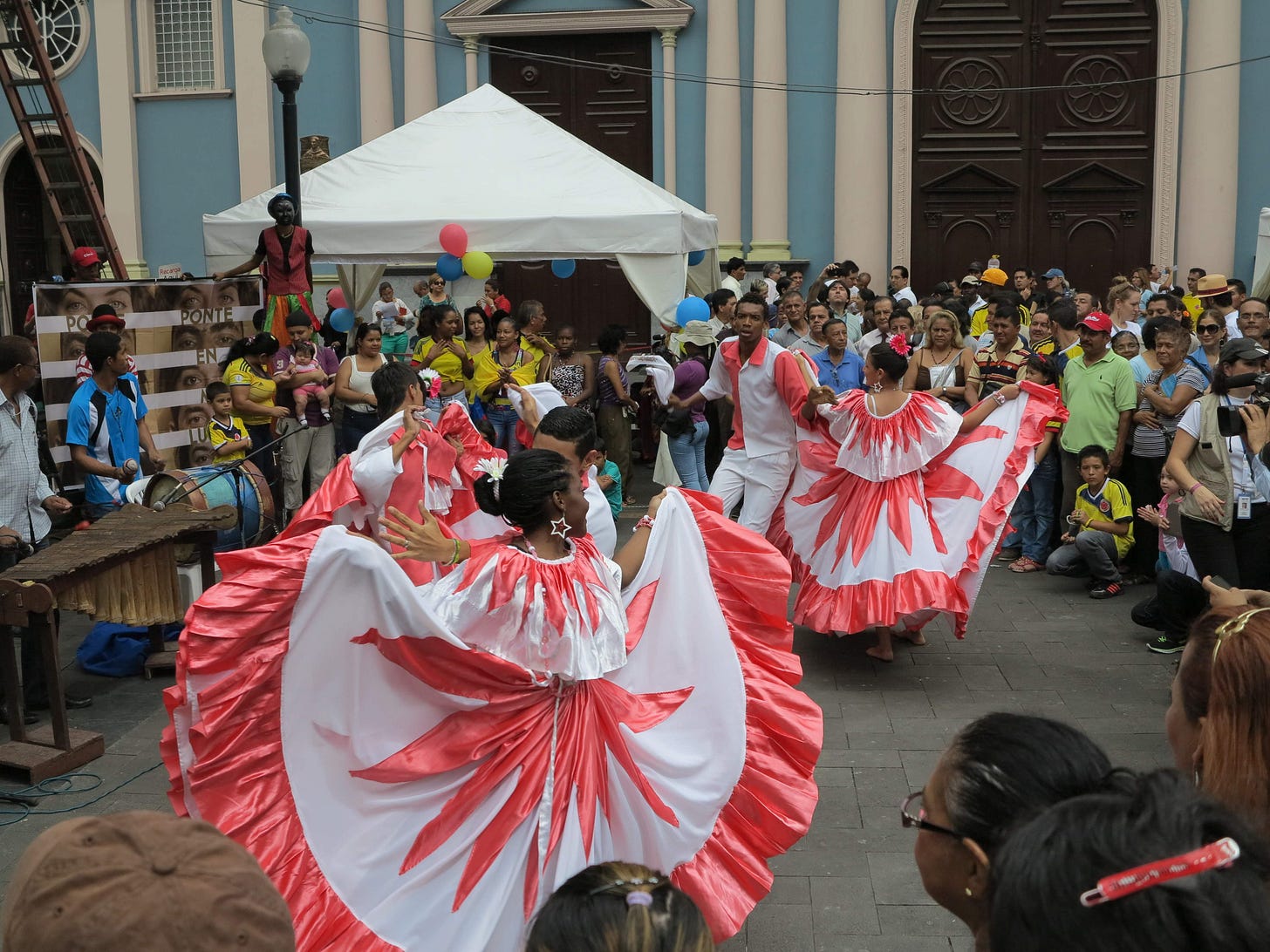
In Act 1, we spend a lot of time halfway-in and halfway-out. Unless we’re one of the fortunate few who hear the undeniable call of vocation from an early age, we wander in the desert, searching for a spark.
In the end, it’s more of a remembering, than a calling. An intuition that tells us what direction to go and the next best decision to make. This is infinitely more complex in our times because most of us have grown to mistrust our intuition and our instincts - some of us can’t access them at all. We interpret failure as a sign that our intuition has failed us - this is wrong. Failure means you’ve tried and intuition favours the triers. Failing is simply cause for adjustment. Tweak the dials, but never stop moving forward. That's the only true failure - one of imagination, more than anything else.
If the point of life is expansion - then the only relevant formula is instinct → action → consequence → adjustment.
I’m optimistic. There are glimmers of hope. The Great Remembering is happening as we speak and it takes courage to step forth and make it so. Wonderful weirdos are exposing us to a form of modern wellness - of whole human health - that is a perfect combination of the old ways and technological progress. Balance - but dynamic balance. Movement is a key part of the formula - life isn’t static.
At some point in life (Act 3) it occurs to us that halfway-in-halfway-out is no way to learn. The sampling period of youth is exciting - and necessary - but when we know who we are - when we’ve turned our early inclinations into skills, and we’ve started down the path - it’s time for full immersion. To wade into the frigid waters, and to find ourselves there.
To find the ease and calm that comes with fluid movement. In practical terms, this is the ability to improvise. Improvisation is also earned - it’s the byproduct of time and experience. You know it when you see it. Masters can improvise on the fly, because this is just another one of those. Their intuition is almost always directionally correct. They log the results of their decisions in their minds, or on paper - to be accessed when necessary.
In full immersion we often find our soulmates - we find the soulmate archetype. The unique, often odd people, who come into our lives to whom we feel an immediate connection. This is never superficial. It’s not because we can laugh really hard over drinks - that's wonderful - but this is different. This is that human individual that you could build anything with. That you could make anything with. That you could go anywhere with. That makes you feel damn near invincible. The connection of souls is forged in the crucible of experience. Everything is learned through action. Everything is learned on the road.
Everything is learned through full immersion.
“What’s the solution? It’s simple…Stay on the bus. Stay on the fucking bus.” - Arno Minkkinen
All we need is a point of view, a set of tools, and a lot of time. I hope that in this post you learn the qualities of full immersion, the joys of finding a soulmate, discover your deep-end, and dive in.
Here are 5 Tools used in this post.
The People & Place podcast playlist - a curated playlist just for us
One of the wonderful weirdos of modern high-performance - LA’s own Case Bradford
The Daily Laws from Robert Greene
The inaugural People & Place Goodreads list, curated for this community
The saintly swimmers of the Faroe Islands
Are you interested in getting access to all of the tools used in every post on People & Place? Let me know in the comments.
Full Immersion in Grand Paris
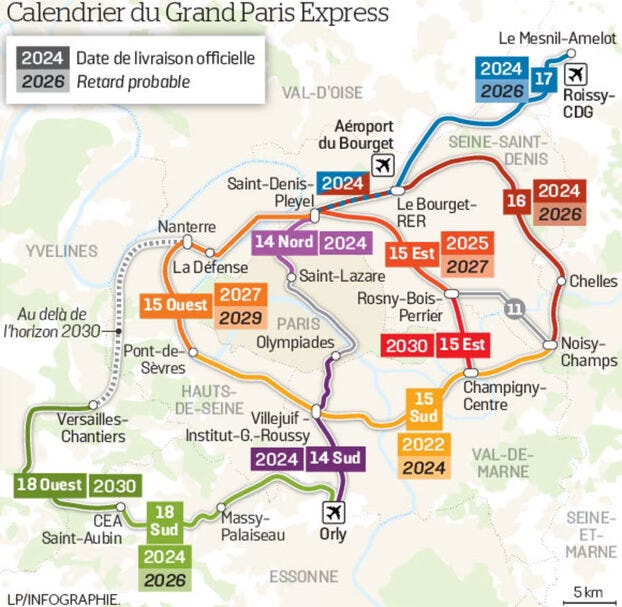
The ‘Daily’ genre of bookdom is an interesting one. Similar to the phenomenon of Life Companion media. You’re not long-gone-down-the-rabbit-hole - you get a small taste everyday - often as you’re moving through to something else, or doing something at the same time, like vacuuming. For me, it’s depth > breadth (especially where character is concerned), but I have acquired at least 3 Dailys and they live on an easily accessible shelf - often picked up in the pre-dawn, or after sunset. Reminders. Prompts. That sort of thing.
My favourite is The Daily Laws from Robert Greene, and the introduction to February found me at exactly the right moment. Like a wizard, words are never late, nor are they early, they arrive precisely when they mean to.
After graduating from university, Robert set forth on a walk-about, as many young people do. For him - Europe - full immersion in countries, and with people, who spoke the languages he was learning in school. My reigning theory of Europe and its inevitable allure - especially for young, hopeless romantics - is two-fold. One, simply because it’s the very centre of most modern maps. Second, because it’s connected by land to Asia and, essentially, to Africa. Something about the fact that a large portion of the world could, in theory, walk there sets its claws in the travellers skin.
It happens to also be where my travel story begins. I wish I could say it started under noble circumstances - it didn't. I wish I could say I set sail to Greece, and then Turkey, at 18 because I wanted to see the world and all it had to offer - I didn’t. I was sick with love - following someone who did have those things - like some kind of pathetic tag-along. Alas, that is a story for another time, and several glasses of wine (I stopped drinking 14 months ago, so I’m afraid you’ll be waiting quite a long while).
Robert ended up in Paris and almost immediately felt the pull to stay there - un coup de foudre. In the beginning, breaking in to French-Parisien culture was a great challenge. A proud folk, they weren’t kind to his clunky language skills, and it was clear that the wasn’t one of them - he was one of something else. If you’ve been on the road you know this feeling and it either breaks and demoralizes you, or makes you stronger and more eager to lean in - there is no in-between.
He instinctively knew that to contract would have been the death of the process - you might as well pack-it-in-sonny-boy. To expand would be the first step - however scary - toward a new life.
“But then I made a key decision…I forced myself out of the hotel room. I made myself speak every single day with Parisians for several hours…Every time I interacted with Parisians I listened to them carefully and noticed any words or expressions I did not understand. I asked questions.” - Greene
He got a job in customer service (elite move) - as a hotel receptionist.
“I was becoming more fluent by the day. I could converse with everyday people; I was meeting Parisians and my circle of acquaintances was expanding. I learned in this way that the Parisians were not unfriendly at all. I was invited into their home and could feel what it was like to have grown up in that magical city.” - Greene
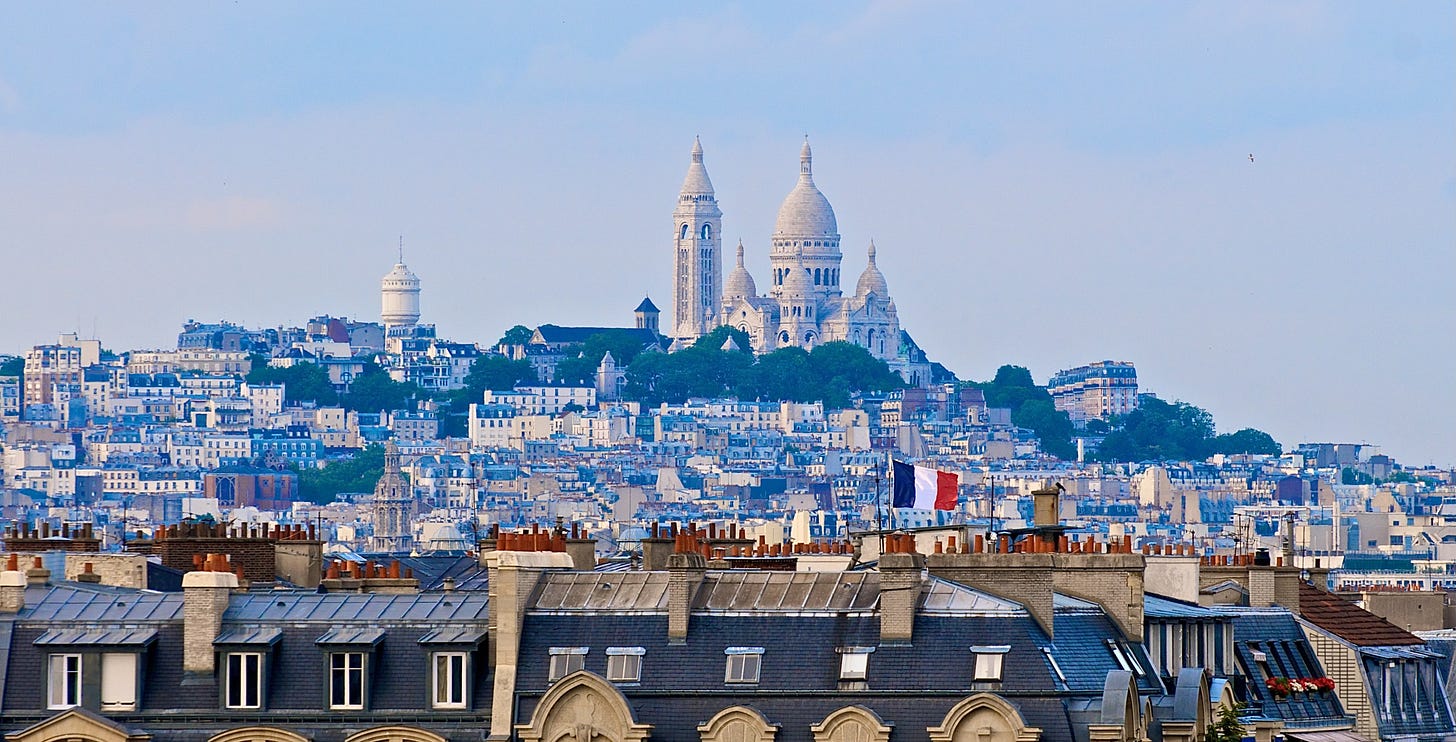
This depth of People & Place is only possible through full immersion.
The first step toward full immersion is motivation - and motivation is a form of expansive discipline.
“There in Paris, it was sink or swim. I had to learn. I had to get a job and meet people. Because of this high motivation factor, my brain absorbed information at a much higher rate. I learned more in one month than in two or three years of university…because I was so excited.” - Greene
The second step, or quality, of full immersion is intensity. Specifically, the intensity of focus.
“Practicing every single day for hours upon hours, having the language ringing in my ear, dreaming in French, my attention was intense and focused.” - Greene
The final, and most important component of full immersion is, of course, action.
“You need to be out on the street, interacting with people, trying things out, learning from your mistakes, not being afraid to make mistakes or be ridiculed.” - Greene
The combined forces of all three elements give us a confidence we could never have achieved otherwise. We’re convinced that we become confident first, and then it’s time to act. That’s wrong. We take a step forward first, and the very act of doing so gives us the confidence we need to keep going.
“It gave me confidence that I could master anything with this basic pattern…I had learned the importance of getting at it every day, being disciplined and excited at the same time. I had learned the value of intense focus…You learn by doing, over and over, practicing and practicing. And from this, you slowly get a pleasure, a joy from the process itself and from mastering something. And that joy and that pleasure stays with you for your whole life.” - Greene
Full immersion and discipline are learned, often from mentors or a self-directed apprenticeship. We attach ourselves to those who have done what we’re trying to do, and we commit to working a process of forward motion over time, through practice, repetition, relationship, and focus.
There is another archetype on the path, just as important as the mentor. The mentor is the Master - and there is much to learn there. But another archetype - the soulmate -is the companion on the road. The co-conspirator of fate.
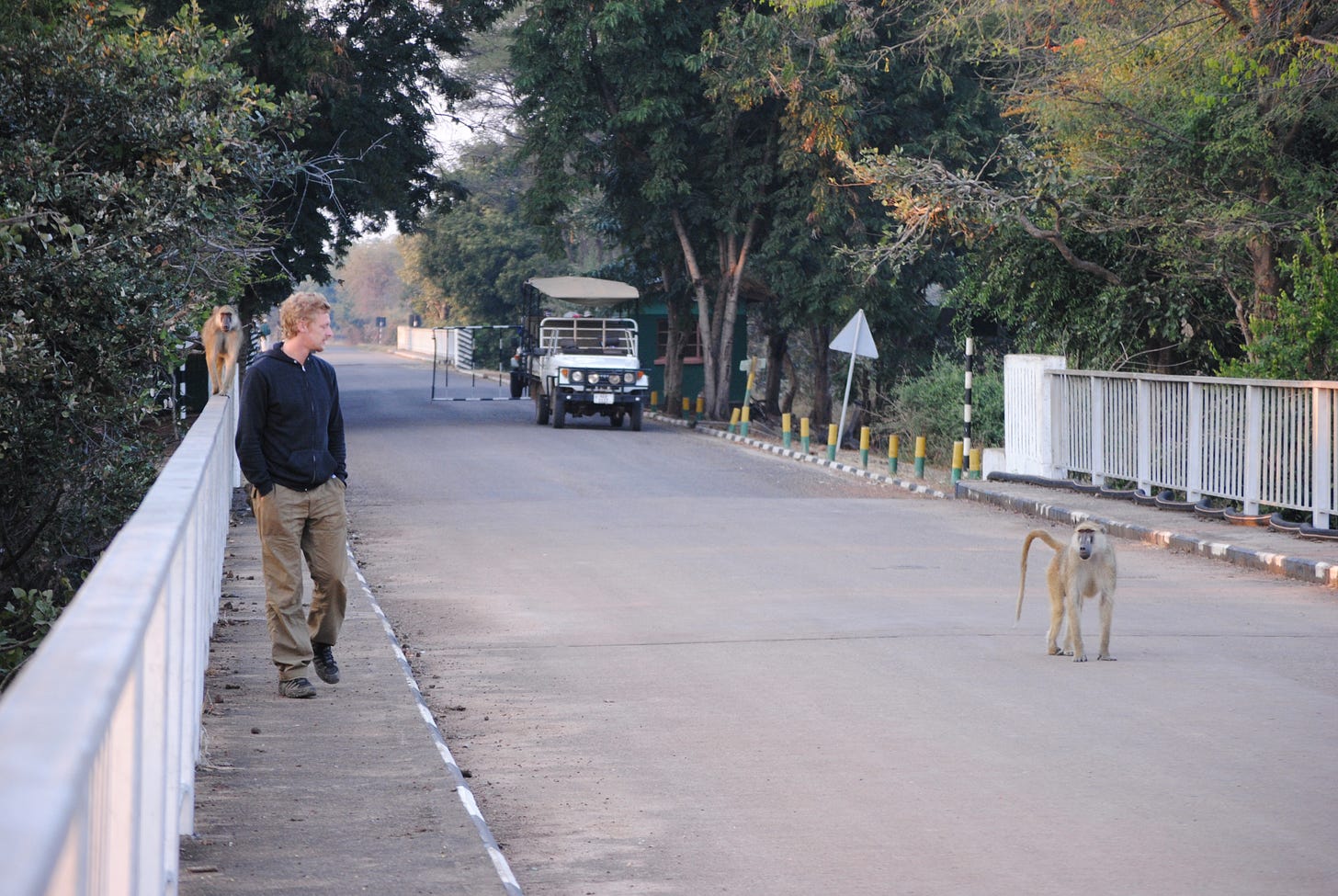
At the Foot of God, in the Heart of Africa, and Everywhere in Between
I may not have left home for Eurasia with noble intentions, but it did lead to an early life of great adventure. One that has defined almost every conceivable decision of consequence. In fact, the very act of coming home - and staying here - was only possible because I had seen so much, so early.
“Nothing feels better than going home. And nothing feels better than leaving home - the bittersweet curse.”
After my first year of university, in the summer of 2011, Africa began calling and so I signed up to spend 100 days or so working in a small country in the Great Lakes region called Malawi. From a biblical and naturalist perspective - another homecoming of sorts (this is, oddly, one of the few things they seem to agree on). I was an intern, the goal was to be semi-productive, but as in all things that involve youthful exuberance, I arrived hoping to be useful and left feeling entirely useless. More on that later.
The experience brought together students from across the region, and in the Schipol airport on the outskirts of Amsterdam we met for the first time, before hopping a connecting flight to Nairobi. It was there that I met Robin - someone I connected to immediately. Someone who would become my travel partner and, undoubtedly, my soulmate.
We had experiences in Africa I won’t soon forget - won’t ever forget - and it forged a bond that - even after all this time - fits like a glove.
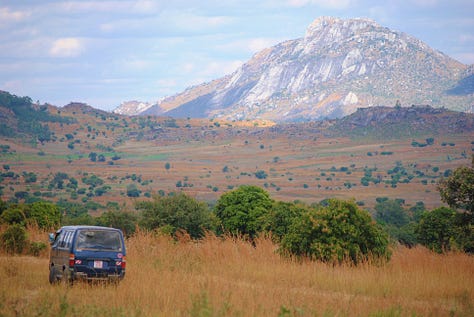
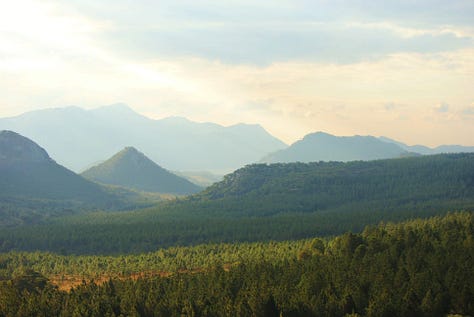
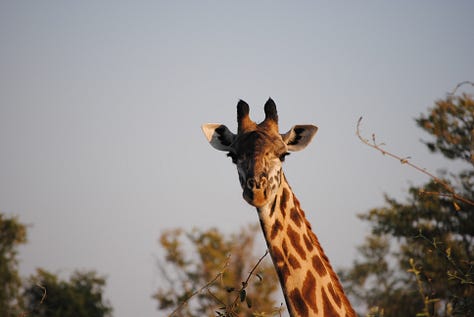
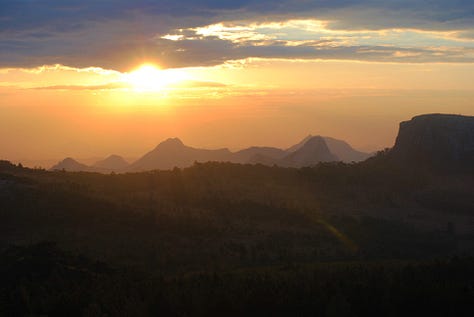
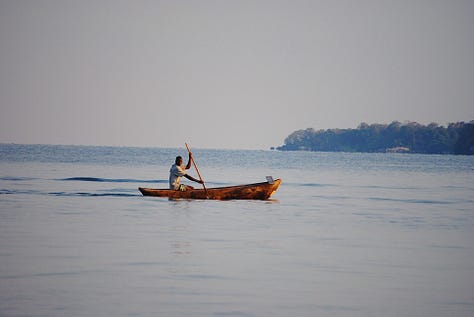
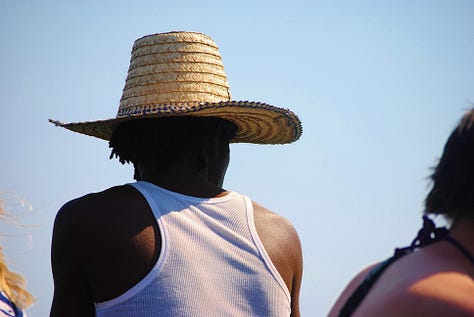
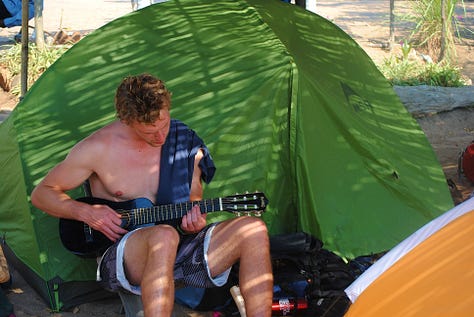
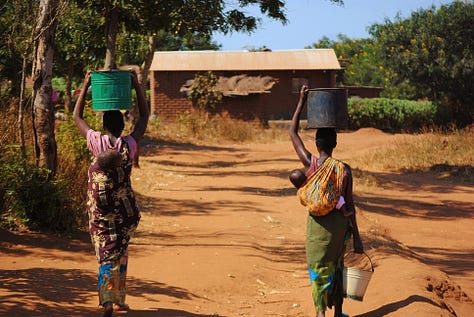
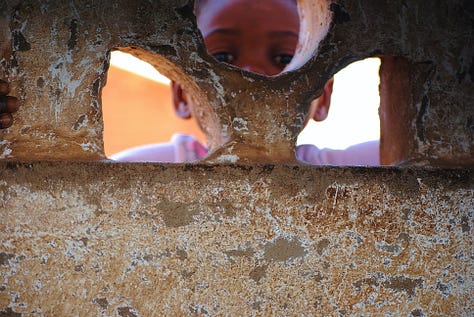
By 2014 I had long wanted to see the Pacific coast of South America. I got my chance - a relationship building opportunity between my home university and another, in the hustling-bustling town of Guayaquil, Ecuador. Relationship building would come to be the central core of all the work that I do, but I couldn’t know that then - we can only connect the dots in reverse.
I landed at 2800 metres above sea level - one of the highest airports in the world - on what can only be described as a mountain-pass-runway, in the capital, Quito. I had been in the South Pacific the year before, and during that period had forged a friendship with a young man from the city. He had returned home to continue building his life there, and he eagerly agreed to reconnect and put me up in his family home. Having friends in every corner of the world has incredible advantages - it isn’t full immersion if you aren’t in tow of locals.
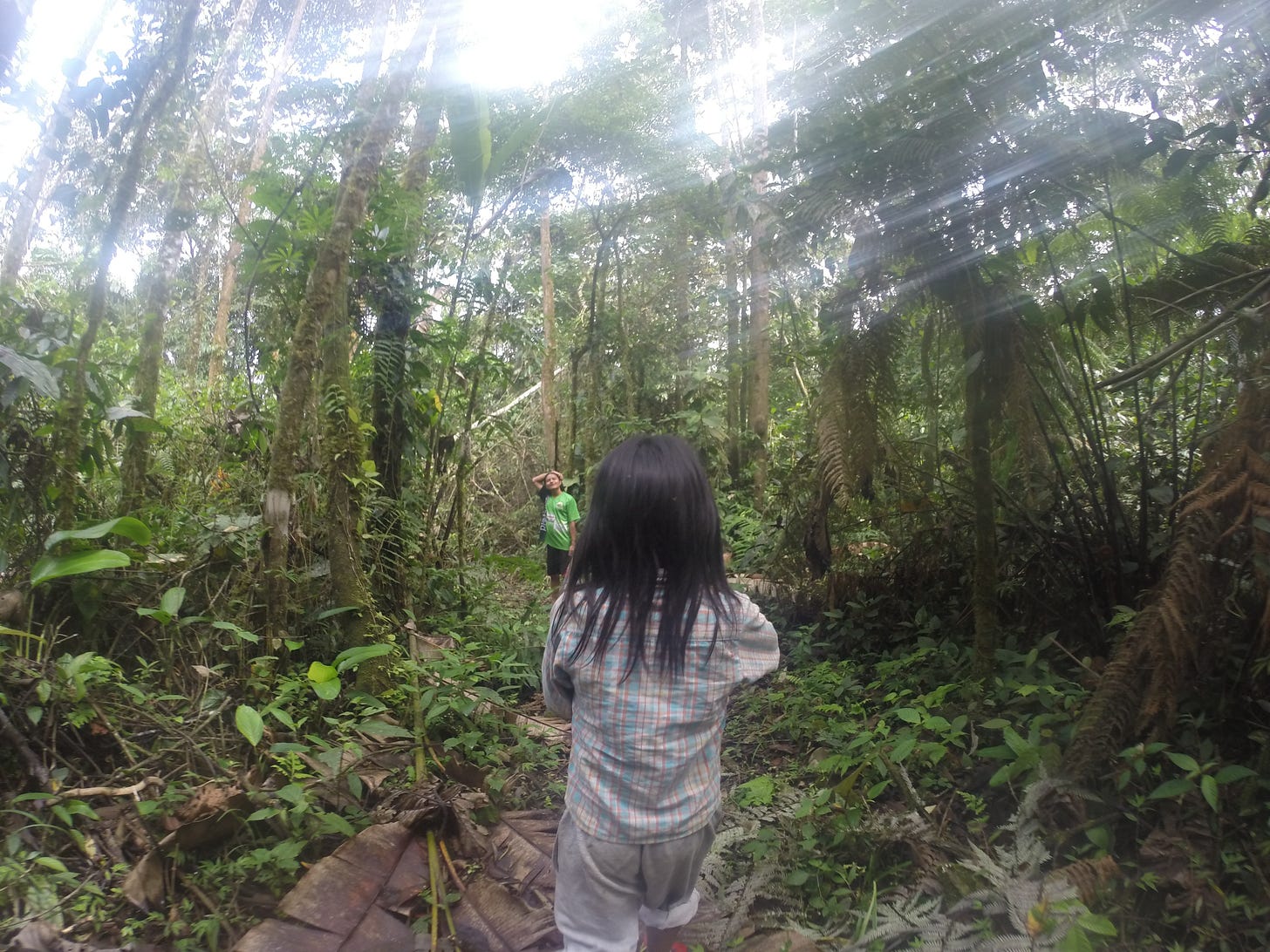
I experienced the border regions of Colombia, and soon felt a desire to go South, into the Western (semi-desert) beaches of Peru where there were small enclaves of surf and sun. When you find your travel partner - a real travel partner - as soon as you hit the road your immediate instinct is to send a raven and get them there. With someone like Robin, that takes little convincing.
Robin arrived soon after and we struck off to find whatever it is we are both perpetually looking for. Oddly, it feels much better looking for that something with someone else. As if that was how it was always meant to be - a small band of capable humans, on the road together, navigating the challenges, obstacles, great highs, and lowest lows.
Perhaps this is what the modern digital nomad gets wrong - that work is meant to be done in groups, and we can only really find ourselves by being in relationship with other people. I’ve met many of them - in all corners the globe - and they seem to be searching for something they don’t find until they either settle down, or go home.
“But ‘digital nomad’ is a misnomer - and an instructive one. Traditional nomads aren’t solitary wanderers who just happen to lack laptops; they’re intensely group focused people who, if anything, have less personal freedom than members of settled tribes, since their survival depends on their working together successfully.” - Burkeman
We decided the first order of business would be to see more of Ecuador, and so we left, by road for far reaches like Montanita, Cuenca, and Quilotoa. Craters, dancing, flat-bed trucks, vomiting, diarrhea, laughing, reading, writing, thinking, feeling. Full immersion.
The last order of business before carrying on to Peru, was to experience the Amazon. When you say the word Amazon, almost everyone thinks of Brazil - for good reason. The mighty Amazon River and its countless tributary mysteries. The Ecuadorean corridors get far less press, but are spectacular nonetheless.
We went about finding our way in, and through, the old-school way. By building relationships with regular people in regular places. We picked a spot on the map that we believed would get us from here to there, went there, and started meeting people. The message here is crystal clear to me now - almost everyone wants to help you, they just need to know how, and it’s your job to help them understand that. We made friends with a humble bar-keep, and told him what we wanted - to go into the Amazon, on whatever the exactly opposite of a guided tour is. He knew a guy who knew a guy and got us connected to someone who would take us in to stay with a small collection of families that still lived traditionally in the mother of all forests (in some ways - the Mother of us all).
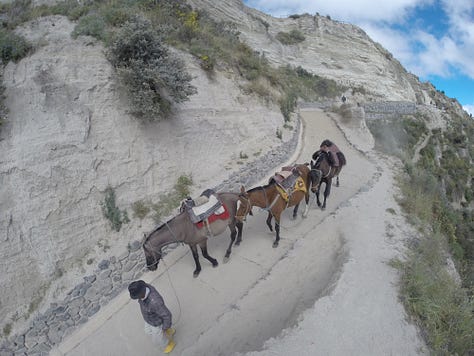
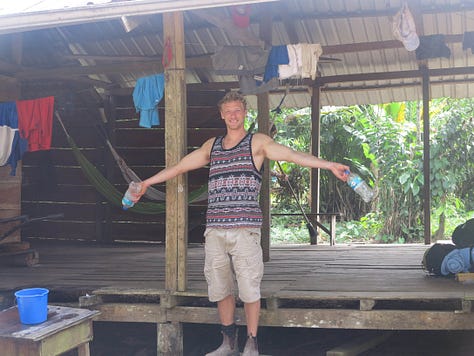
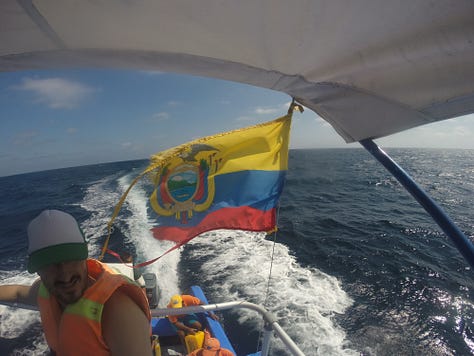
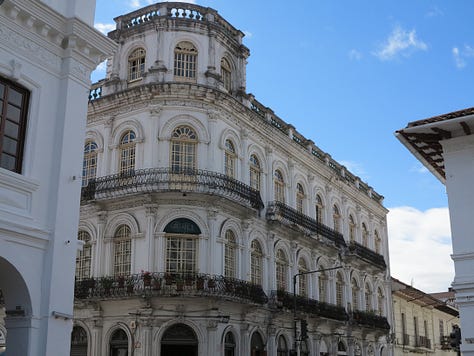
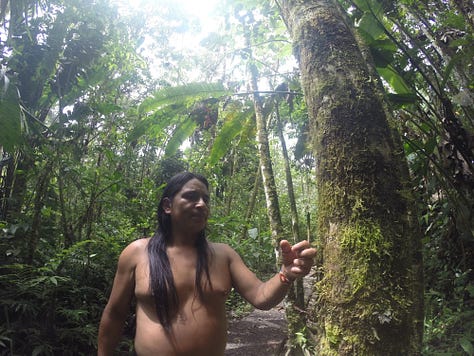
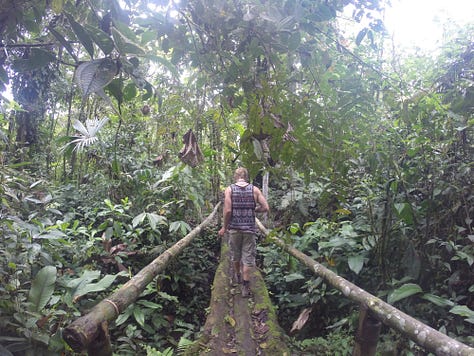
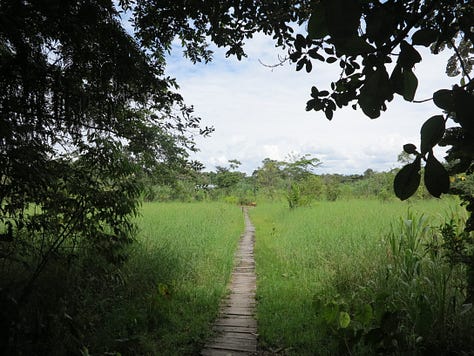

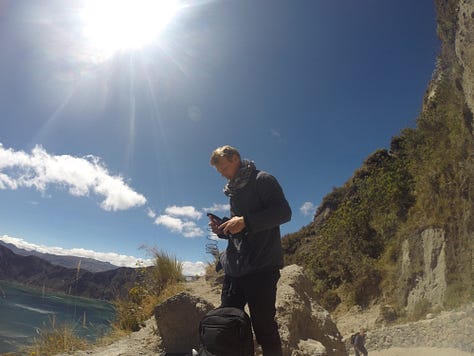
Standing at the foot of the Amazon is a feeling of bigness that is hard to describe. It’s as if God himself can’t help you here. As if you’re too far gone. That you’re about to make a choice and that choice is like the one Caesar made when crossing the Rubicon. There is no coming back. This is a one-way door. Oddly, the first step was easy because it was with someone who made me feel invincible. Someone who I had taken many steps with in the past, some safe, others not safe at all, and had been spit out the other side by the universe. That’s a soul-mate.
The plan, of course, is to physically return from your adventure - and return we did - but as in all things transformational, you’ll be different somehow. Changed because you’ve traveled through time. To a world that is quiet (but loud), dangerous (but safe and regulated by some natural law), and somehow more real (but unbelievable) than the parochial town and time in which you grew up. That’s how I felt, because that's what it was. (Romanticism tends to serve hindsight well and I understand that as the years pass I will likely have sensationalized the feeling, but I feel it all the same.)
The soul-mate relationship - and the archetype of the one you find - is forged in the fire of experience. It’s as deep as deep gets because you’ve experienced so many things together, and experience comes with full-spectrum emotion. You’ve been on-your-death-bed-sick in a small town in Africa. You’ve been robbed (perhaps more than once) at a local market. You’ve been hoodwinked and bamboozled by a counterfeit currency exchange. You’ve been hurled down the Zambezi in an inflatable dinghy - guinea pigs on the maiden voyage of a new (and suspect) white-water rafting company. You’ve danced like fools because nobody knows you for 1000 miles, and you’ve given each other space on a long bus ride because you know there’s things you have to process, and they have to be processed alone.
And yet you continue to return, because even though the world is uncertain and ever-changing, there are some people who remind you that it will all be worth it in the end. Who remind you that the world is good, people are good, and that being in relationship is the only thing that actually matters. We don’t get this chance often. This archetype is rare. I recommend you take it when it comes.
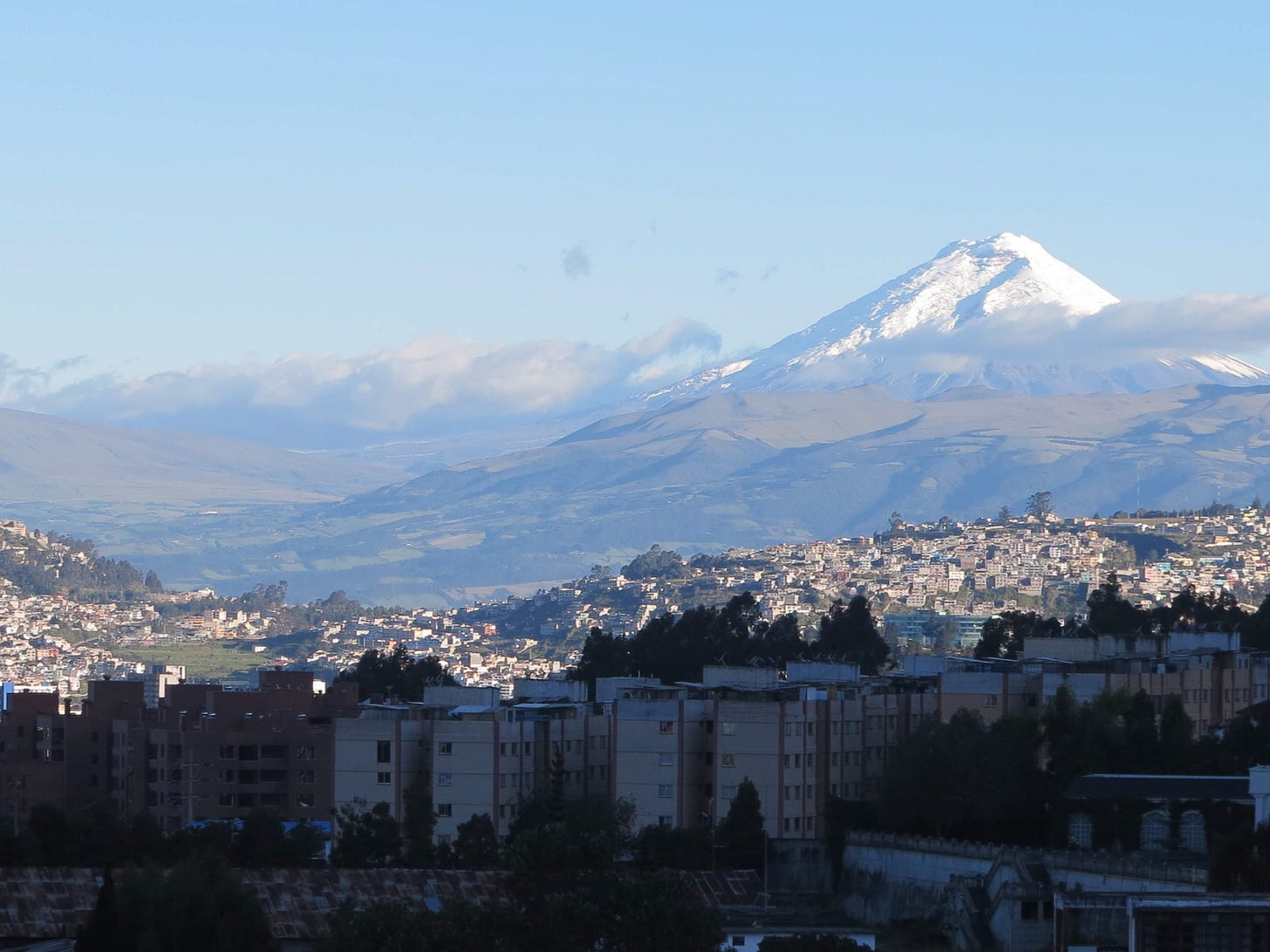
All we need is a point of view, a set of tools, and a lot of time.
Onward.
Next time, the beginning of ‘The Timelessness Series.’
See you on the path.


